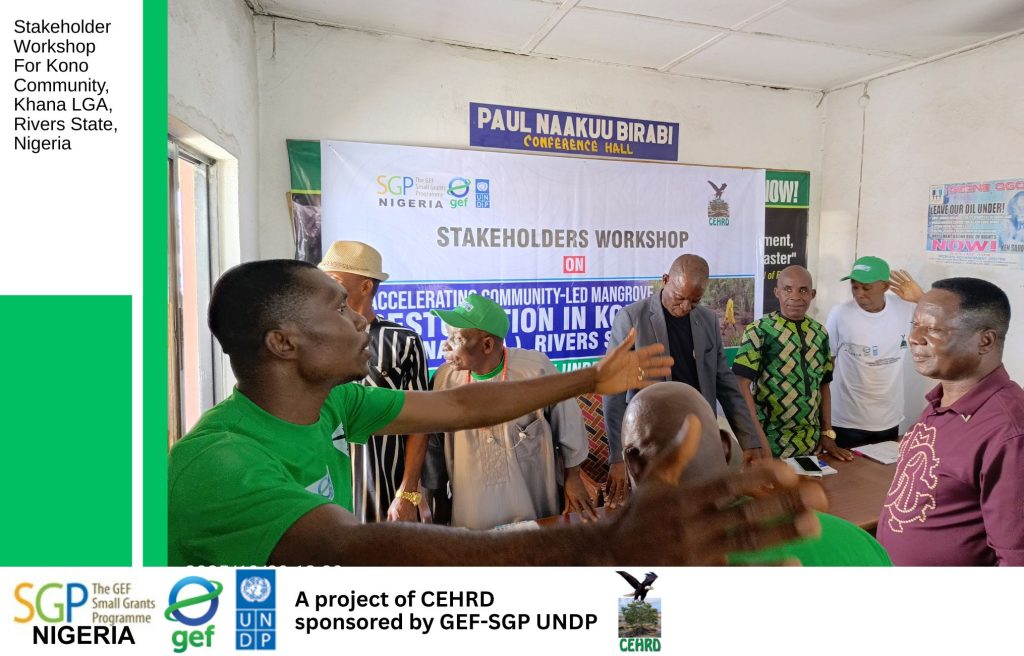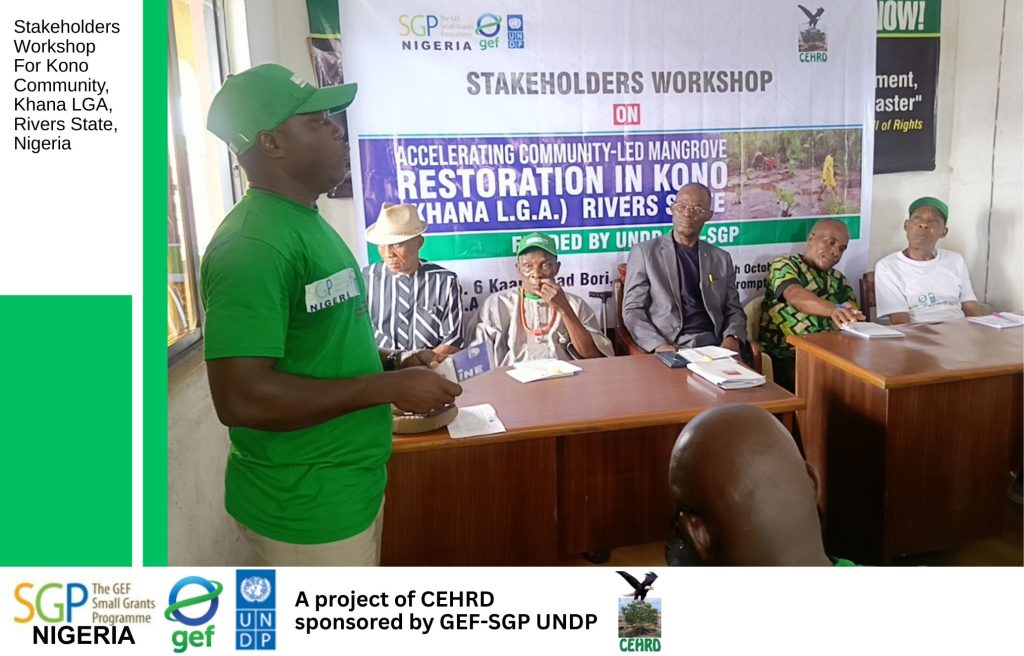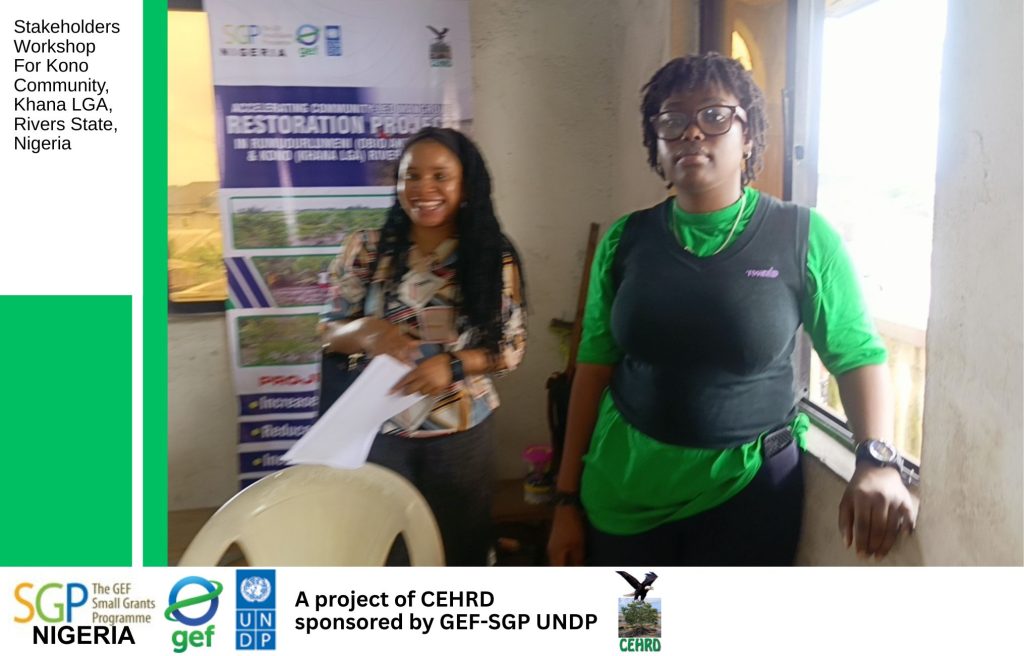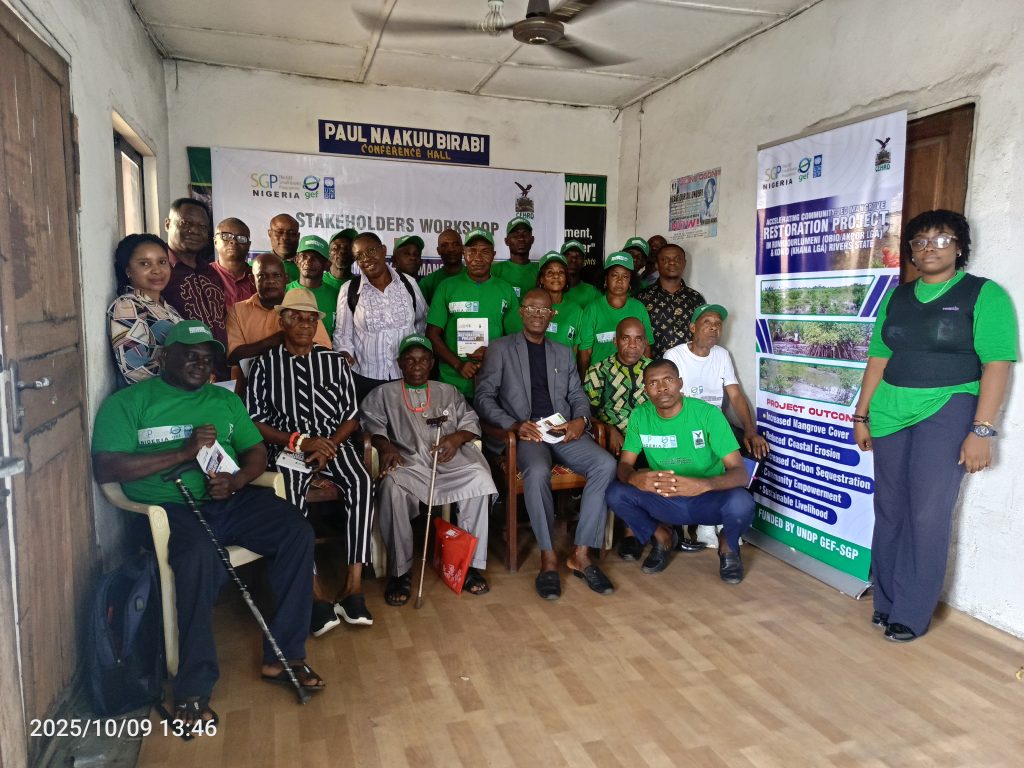By Meshack Uyi
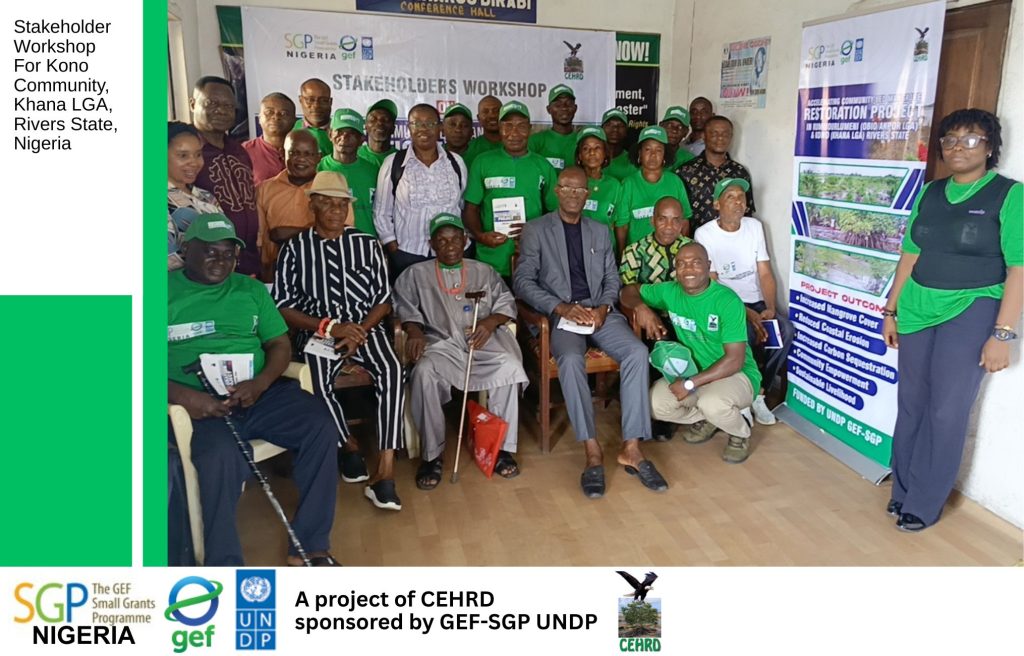
The Centre for Environment, Human Rights and Development (CEHRD) on October 9, 2025, organized a Stakeholders’ Workshop on Mangrove Ecosystem Restoration at Bori Town, in Khana Local Government Area, Rivers State. The objective of the workshop was to provide a platform for community members and stakeholders to voice their opinions about the “Accelerating Community-Led Mangrove Restoration Project” being implemented by CEHRD in Kono and Rumuolumini communities in Rivers State.
The CEHRD team, led by Meshack Uyi, provided updates on the project’s performance, challenges, and the support needed to chart a sustainable path for mangrove ecosystem restoration efforts. The workshop also offered an opportunity for participants to give feedback to CEHRD on the project’s impact, fostering increased collaboration and synergy among stakeholders.
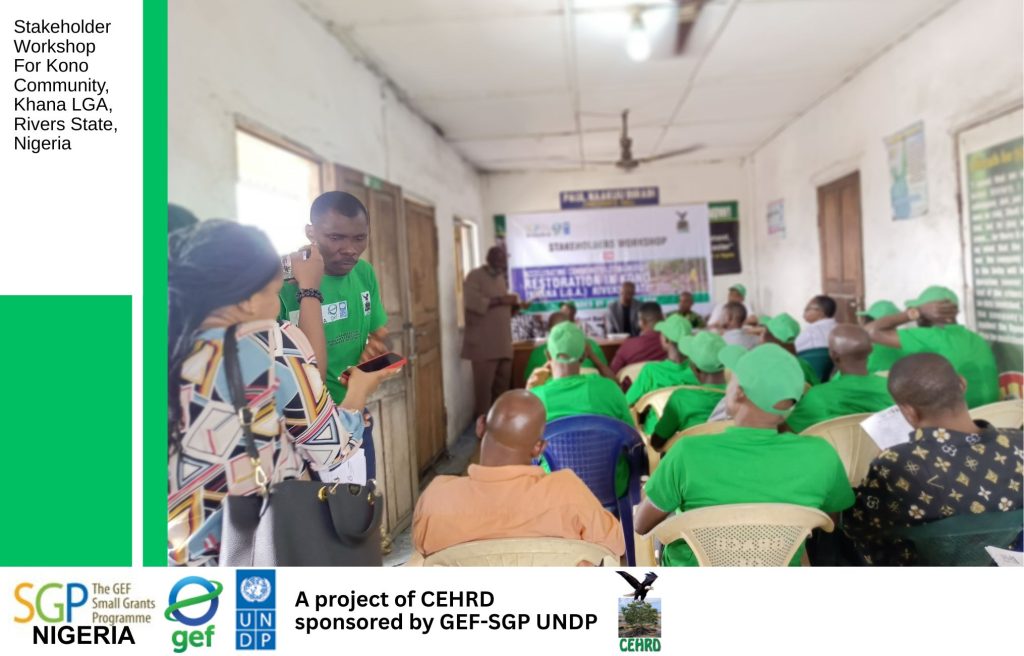
The Paramount Ruler of Kono, represented by the Deputy Paramount Chief, Festus Koki Nwikina, attended the event alongside members of the Traditional Council, the Youth Council, and the Chief Security Officer of Kono. Also present were representatives from the Ministry of Environment, academia, and civil society organizations such as SWAYA, Rainbow Watch, and the Pius Dukor Foundation, as well as community-based organizations like the People’s Advancement Centre.
The Vice Principal of Kono Secondary School and a teacher were also in attendance, together with the newly inaugurated Community Mangrove Management Vanguards. During the event, the Deputy Paramount Ruler commended CEHRD for updating the community on the project’s progress and for seeking their feedback. He pledged the community’s commitment to the initiative while calling for stronger support from the Rivers State Government to achieve the project’s goals.
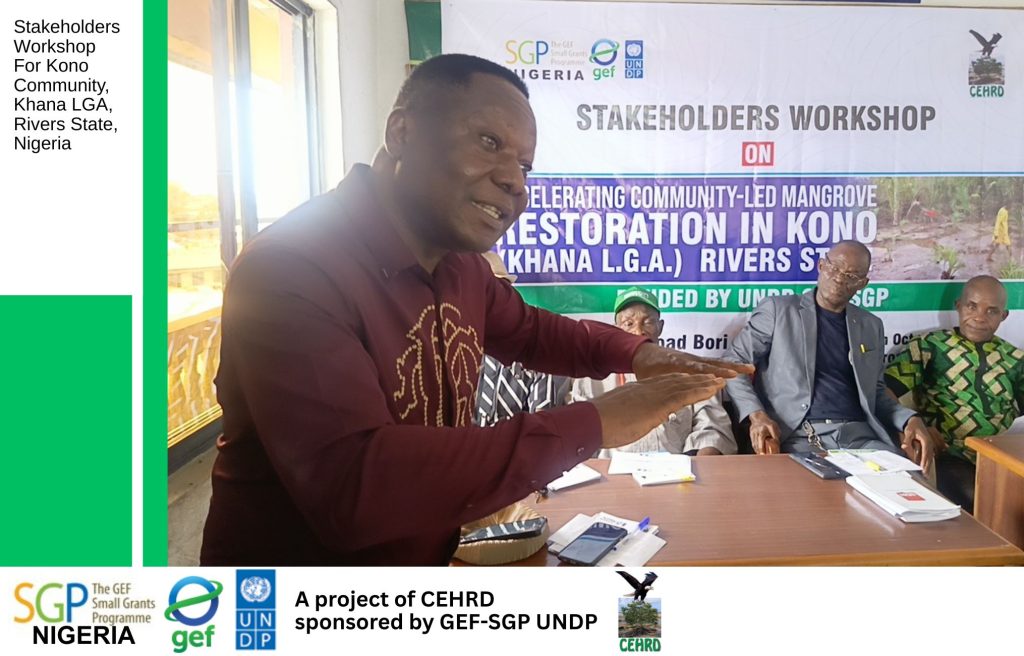
A representative of the Ministry of Environment, Dr. Moses Bereiweriso, delivered a keynote address emphasizing the importance of community involvement in mangrove conservation. CEHRD Consultant, Dr. Victor Gbosidom, a lecturer at the Ken Saro-Wiwa Polytechnic, Bori, spoke on the need for mangrove restoration and called for the involvement of all stakeholders. He further urged the government to reactivate existing laws on mangrove restoration and encouraged participants to take ownership of the initiative, describing it as “Bring Back Our Mangrove.” He noted that mangrove vegetation forms the bedrock of fish production.
The high point of the workshop was the discussion session, which featured submissions from stakeholders on “Lasting Solutions to Mangrove Ecosystem Restoration” from both government and community perspectives. Dr. Bereiweriso, representing the Rivers State Ministry of Environment, stated that communities should collaborate with the Ministry in mangrove planting and protection, noting that existing environmental management laws in Rivers State already include provisions for mangrove protection. He further urged communities to protect their environment—especially mangroves, which serve as breeding grounds for fish—and advised them to develop local policies for mangrove preservation while combating the spread of nipa palm.
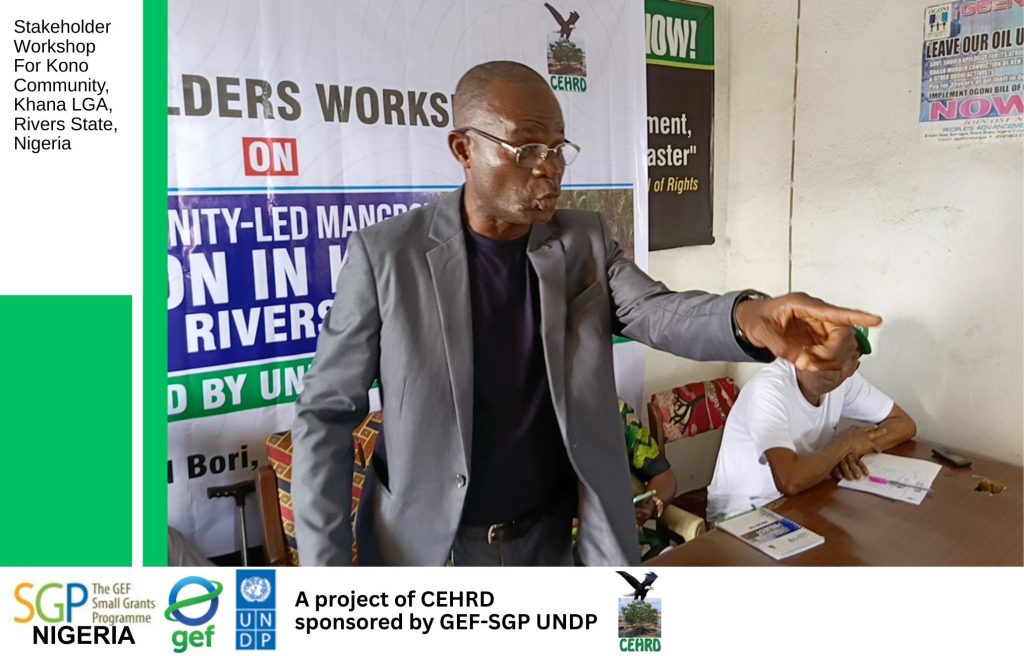
Chief Festus Koki Nwikina suggested that communities revisit and strengthen their local environmental laws, particularly those related to mangrove preservation, food security, and livelihood improvement. He also called on the government for assistance, noting that “it was our local community policies that preserved our mangroves in the past,” citing the example of the Nwenua mangrove forest. Dr. Simon Vulasi, Vice Principal of Kono Secondary School, recommended that the government intensify sensitization campaigns through radio and television to raise awareness about the importance of mangroves in local communities.
A member of the Mangrove Vanguards, Mr. Collins Love, urged the government to work closely with community chiefs to discourage indiscriminate cutting of mangroves. On the issue of nipa palm invasion in Kono and other communities in Rivers State, Dr. Vulasi and Mr. Collins suggested that the government adopt additional measures—including the use of chemicals—to control nipa palms more efficiently than the current labor-intensive manual removal method.
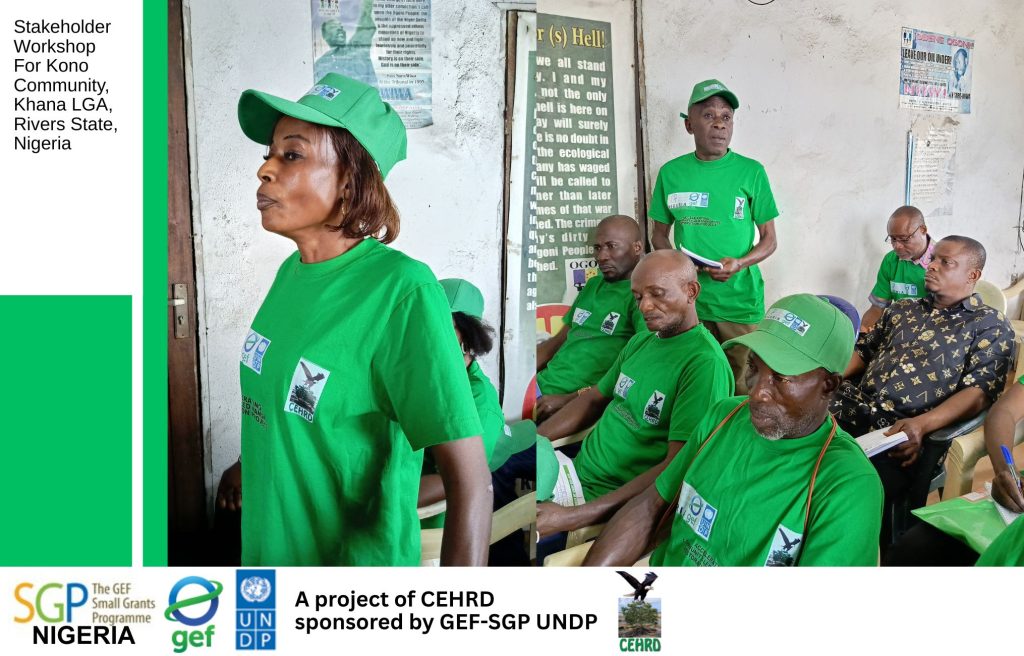
In response, Dr. Gbosidom cautioned against chemical use, explaining that it could harm organisms within the ecosystem. He instead advised communities to continue manual removal, starting from areas within their immediate surroundings. He also noted that nipa palms could have economic potential if properly researched, suggesting that the government explore ways to generate income and employment from them.
As a way forward, the stakeholder from SWAYA proposed that the government mobilize local youth to protect mangrove forests. A representative from Rainbow Watch while acknowledging the role of government, stressed that the community should not forget their critical role as first responders on mangrove restoration and protection. Participants expressed satisfaction with the workshop and pledged their support to ensure the success of the project.
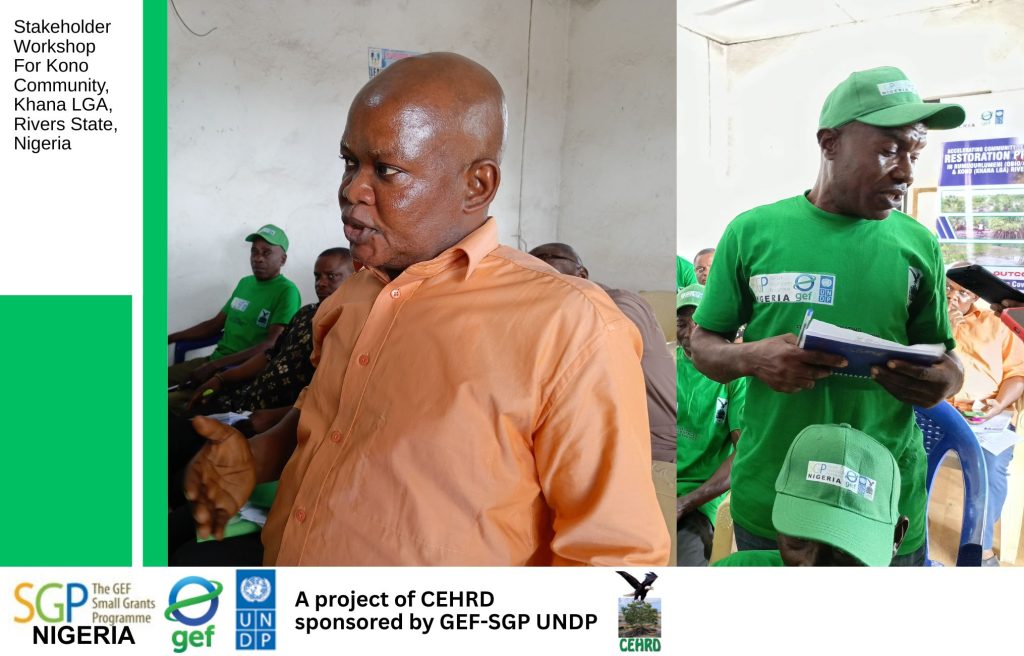
#CEHRD
#LocalActionGlobalImpact
#undpinnovationcentre
#sgpnigeria
#undpgefsgp
#undpnigeria
GEF Small Grants Programme
United Nations Development Programme – UNDP
UNDP in Nigeria
Ronke Olubamise
